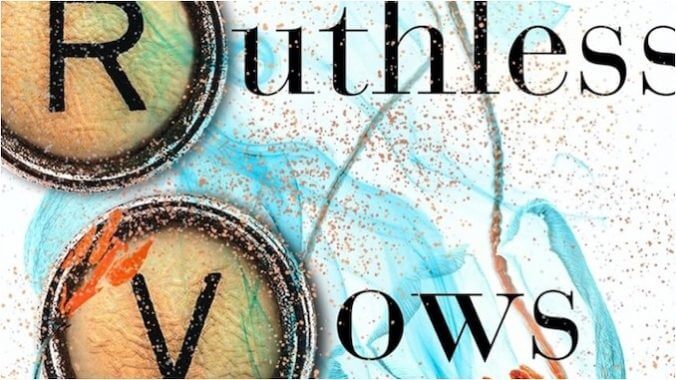Ruthless Vows Is a Satisfying If Occasionally Overly Fantastical Sequel to Divine Rivals

It’s a rare gift, to get the sequel to a popular story mere months after the original’s initial release. (And is, quite honestly, a strategy more publishing houses should look into.) Rebecca Ross’s Divine Rivals hit shelves earlier this spring and was one of the best fantasy books of 2023, a buzzy, word-of-mouth cross-genre hit that captured hearts everywhere. It is the story of a pair of rival journalists who fall in love in the shadow of a devastating war with the aid of two magical typewriters that can send letters to one another, Part heartfelt romance, part rumination on the long-lasting trauma of conflict, the novel deftly explores the impact of an ongoing war between rival gods on everything from family and romantic relationships to class struggles and larger social oppression. Its emotionally devastating cliffhanger ending saw Iris and Roman, now field correspondents at the front in the thick of the fighting, separated during a climactic battle between the warring forces of gods Dacre and Enva.
Its sequel, Ruthless Vows, arrived with the holidays, giving readers (relatively) little time to fret over the fate of the characters that had come to mean so much to him. A follow-up that flips many of the tropes and narrative angles from the first book on their heads, this is less a story of the battle and one of those left behind, a look at the myriad ways a citizenry is asked to navigate an unknown future in the face of increasing fear and uncertainty, as battles they’ll never see waged by people whose interests they may or may not share are waged. It’s still the love story of Iris Winnow and Roman Kitt, told with the help of magically delivered letters, only this time, it’s an amnesiac Roman who is unaware of who is writing to them, and Iris who is asked to balance secrets, this time between her heart and her duty.
Their romance is, hands down, one of the best we’ve seen in fantasy in recent years, and the deft ways Ross throws obstacles in their paths but never asks their readers to doubt their commitment to one another—even when one half of the pair doesn’t technically remember the other—are truly impressive. The aching longing, loneliness, and confusion over missing something you can’t entirely name are beautifully conveyed, and Iris and Roman’s letters to each other are, once again, the highlight of the book. (Particularly when a late twist makes them surprisingly relevant and necessary to the success of the war effort.)
As Ruthless Vows begins, Iris finds herself back in her hometown of Oath, a haunted place full of deceptive calm where masked vigilantes roam the streets at night. Though she’s reunited with her missing brother Forest, she’s struggling to keep the faith that Roman’s still alive. At least until an article appears in the Oath Gazette, authored by Roman and singing the praises of Dacre, the god who has caused such destruction and strife across the world. Rescued from the front and healed by Dacre’s bizarre (and, admittedly, rather poorly explained) divine powers, he no longer remembers his life before his injury—including Iris. Now working for the enemy, his apparent changing of sides lends an uncomfortable amount of legitimacy to Dacre’s cause.
-

-

-

-

-

-

-

-

-

-

-

-

-

-

-

-

-

-

-

-

-

-

-

-

-

-

-

-

-

-

-

-

-

-

-

-

-

-

-

-








































